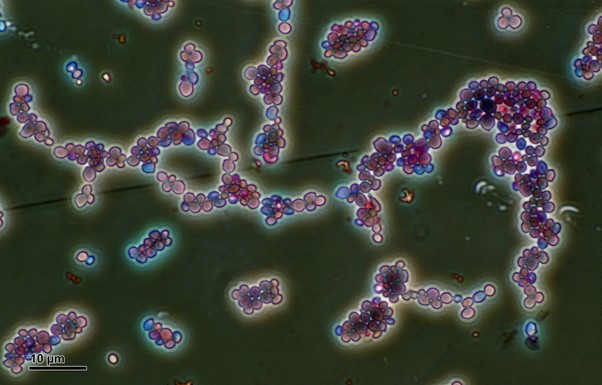
Study Identifies Gene That Could Help Fight Lethal Infection Candidiasis
- News
- 3.1K
A team of researchers from Bengaluru-based Jawaharlal Nehru Centre for Advanced Scientific Research has identified a gene that holds the key to preventing the fungal infection Candidiasis that often affects intensive-care unit patients, cancer patients and patients receiving immunosuppressive therapy.
Named CSA6, the gene has been identified in Candida albicans, a fungus notorious for causing high morbidity and mortality rates under certain immuno-compromised conditions such as AIDS or during cancer treatment. The fungus is a typical member of the human gut flora and typically resides in mucosal linings of the gastrointestinal and urogenital tract of healthy individuals without causing any harm. However, it can turn into a pathogen under immuno-compromised conditions, causing superficial and life-threatening systemic infection.
In the new study, which was conducted by Professor Kaustuv Sanyal’s group at JNCASR in collaboration with Christophe d’Enfert’s group at Institut Pasteur, Paris, France, the researchers conducted a large-scale screening to identify regulators of chromosome stability in the fungus which is also a clinically relevant fungal model system.
They individually screened the effect of overexpression of more than a thousand genes of C. Albicans on genome stability. They identified a set of six chromosome stability (CSA) genes that were found to be critical for maintaining genome integrity. While five of the CSA genes identified in the study are already known to be important for cell division in other species, the sixth CSA gene, named CSA6 was found to encode for a protein that is essential for viability in C. Albicans. They discovered that Csa6 was a critical regulator of cell cycle progression. The scientists have published a report on their findings in the scientific journal Nature Communications. (ISW)
If you liked this article, then please subscribe to our YouTube Channel for the latest Science & Tech news. You can also find us on Twitter & Facebook


